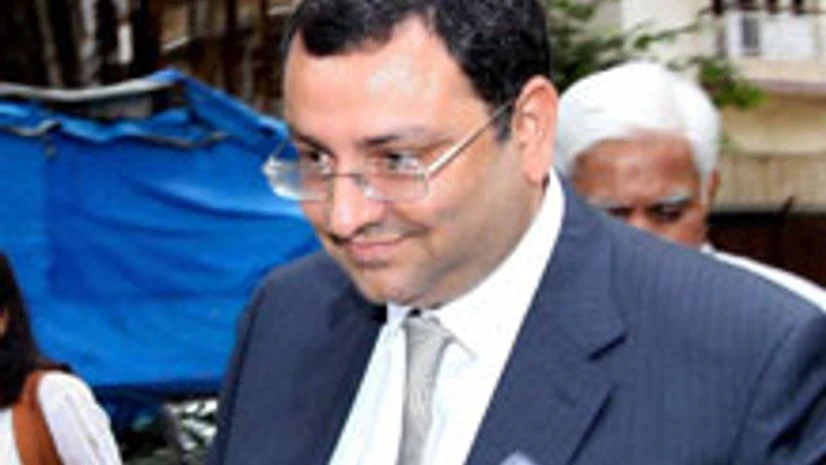The Tata group has put more into building non-cyclical consumer facing businesses. Tata Sons, the investment holding company, has put fresh equity of about Rs 2,500 crore over three years into Trent, Infinity Retail, Tata Capital and Tata Housing.
The group is still largely seen as a manufacturing and technology powerhouse. It is now shifting its focus to the other businesses, as the number of Indian households in the mass segment is expected to reach 111 million by 2014-15, up from 75 million in 2005-06. “Every company in the group has been thinking on how to re-engineer their offering to be able to hit the mass market,” says Raju Bhinge, chief executive, Tata Strategic Management, consulting arm of the Tata group.
The group had earlier limited such exposure to companies such as Tata Global Beverages, Tata Chemicals and Titan. These saw opportunity in largely unorganised categories such as tea and salt, besides watch and jewellery retailing. Now, it is trying to tap the growing mass segment by building new businesses where it sees competitive advantages
One of these is real estate. “Real estate in the luxury segment and for commercial use is cyclical but one very important facet we are trying to crack is the affordable housing story for the middle class and upper middle income group, which is not cyclical,” says Brotin Banerjee, managing director and chief executive officer of Tata Housing Development.
Tata Housing, 29 years old, got Rs 505 crore of equity investment from Tata Sons in 2012-13. The annual revenue was as little as Rs 36 crore in 2006 and it rediscovered itself by foraying into low-cost housing. It recorded Rs 1,135 crore of revenue in 2012-13, having grown at a compounded annual rate (CAGR) of 80 per cent in the past five years.

According to a McKinsey study, India will have 68 cities with a population of a little over a million by 2030, up from 42 at present. “Companies which are today getting into the urbanisation space will see the bonanza and dividend being paid out over the next 10 to 15 years,” says Banerjee.
The company has 29 projects — around 70 million sq ft of properties under various stages of development — at 13 locations across the country. This has an aggregate revenue potential of Rs 33,000 crore. At a higher revenue base, it expects to grow at a CAGR of 30-40 per cent for the next five years, to achieve its Rs 5,000-crore annual turnover target.
To tap the same set of burgeoning mass consumers, another Group company, Tata Capital, is building a retail finance business much faster than that for corporate finance. It began operations in 2007 and got Rs 1,300 crore equity from Tata Sons from 2010-11 to 2012-13. About 70 per cent of this has been used to grow businesses such as home or mortgage loans, loans against property, car loans and personal loans. “Corporate finance and retail business are almost equal now in terms of loan book size,” says R Vaithianathan, managing director, Tata Capital Housing, a subsidiary of Tata Capital. In 2012-13 at Rs 8,833 crore, the retail finance business was 38 per cent of the total loan size of Rs 23,023 crore, up from Rs 2,100 crore constituting a 23 per cent of total loan size in 2009-10.
The company’s housing finance business, of a loan book size of Rs 5,800 crore with 20,000 customers, largely from the self-employed segment, is aiming to grow this to Rs 20,000 crore in the next three years. “We are concentrating on the low middle segment, as the average age of Indian house buyers is coming down,” says Vaithianathan. He is expecting another Rs 1,000 crore of equity infusion from Tata Sons for this.
Similarly, the consumer finance business of the retail portfolio that comprises car loans, personal loans, loans against property and shares, is also expected to grow to Rs 15,000 crore from about Rs 5,000 crore now. It is expecting a similar amount of equity infusion from the promoter firm.
Riding on the same ambition, to catch the new set of consumers, Tata Sons infused another Rs 420 crore from 2010-11 to 2012-13 in its consumer electronics and durable retail chain, Croma, run by Infiniti Retail. The company started operations about seven years earlier and has grown to a little over Rs 3,300 crore annual turnover, with 100 stores in 16 cities.
“The credit goes to the consumer segment we are targeting, which is the youth, and the business executives who understand technology,” says Ajit Joshi, chief executive officer and managing director, Infiniti Retail. The company says its average sale per transaction (ASP) has been growing by about 10 per cent year on year for seven years, to Rs 8,000 now. This is also against the perception that it should go down in the electronics business.
“Spending capacity is increasing, so we consistently provide something better to consumers which helps our ASP grow year on year,” he says. About 80 per cent of the CDIT (consumer durables and information technology) business comes from the top 20 cities. And, the company has targeted to capture 20 per cent of this in those 20 cities. It plans to expand to Kolkata and Jaipur in the next financial year and then take it further to Mysore and Mangalore.
Another retail company of the group that attracted Tata Sons’ capital in the past three financial years is Trent. The group investment holding company infused Rs 265 crore here and the firm saw its most aggressive expansion in this period. Westside, the company flagship department store chain, added 31 stores in the three years, taking the total number to 70. This has crossed 80 in the current financial year. The investment might look small in the context of the over $100-billion turnover of the Tata group but consumer businesses do not require large capital as steel. But it is highly valued from return on capital perspective.

)
